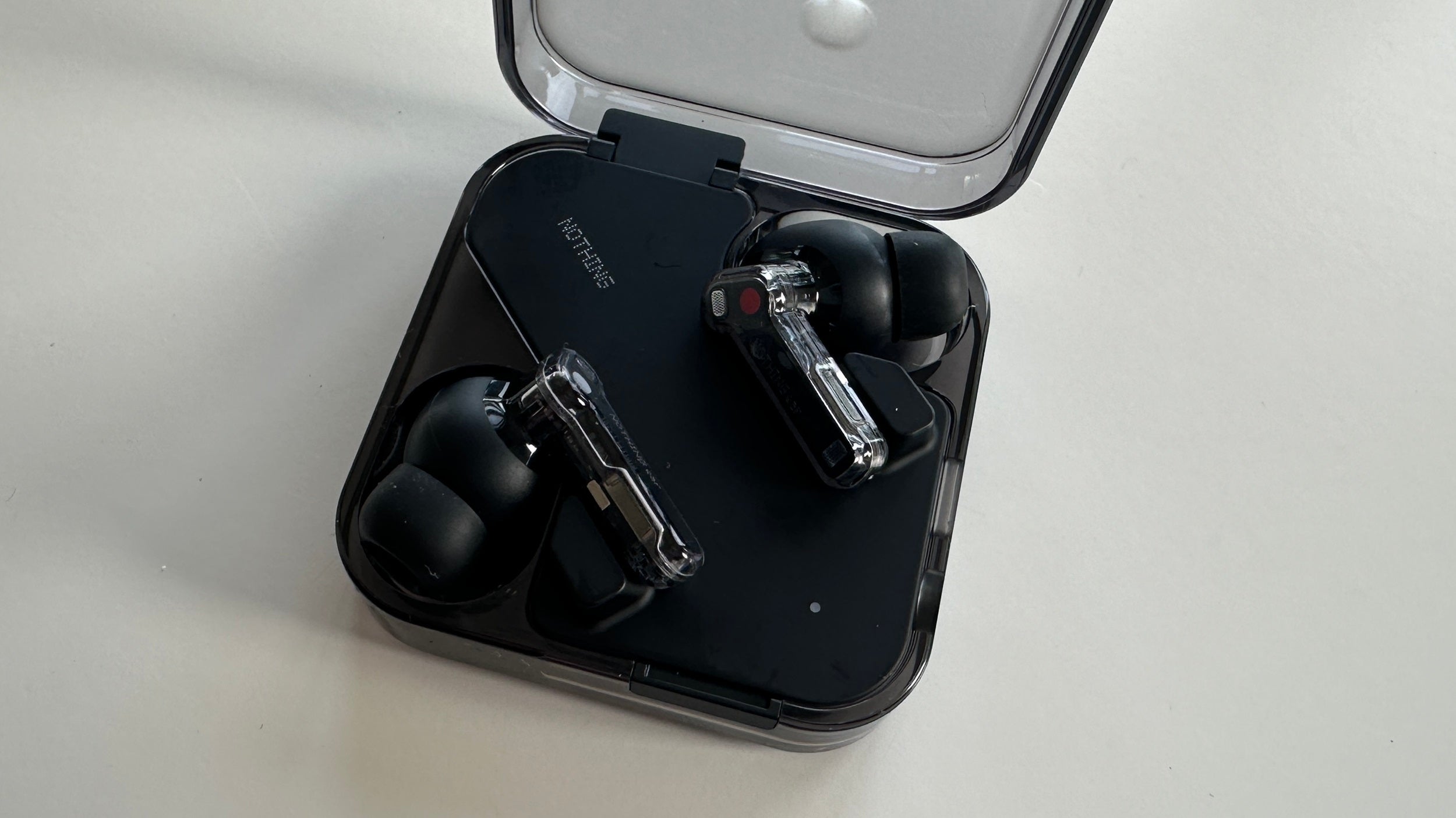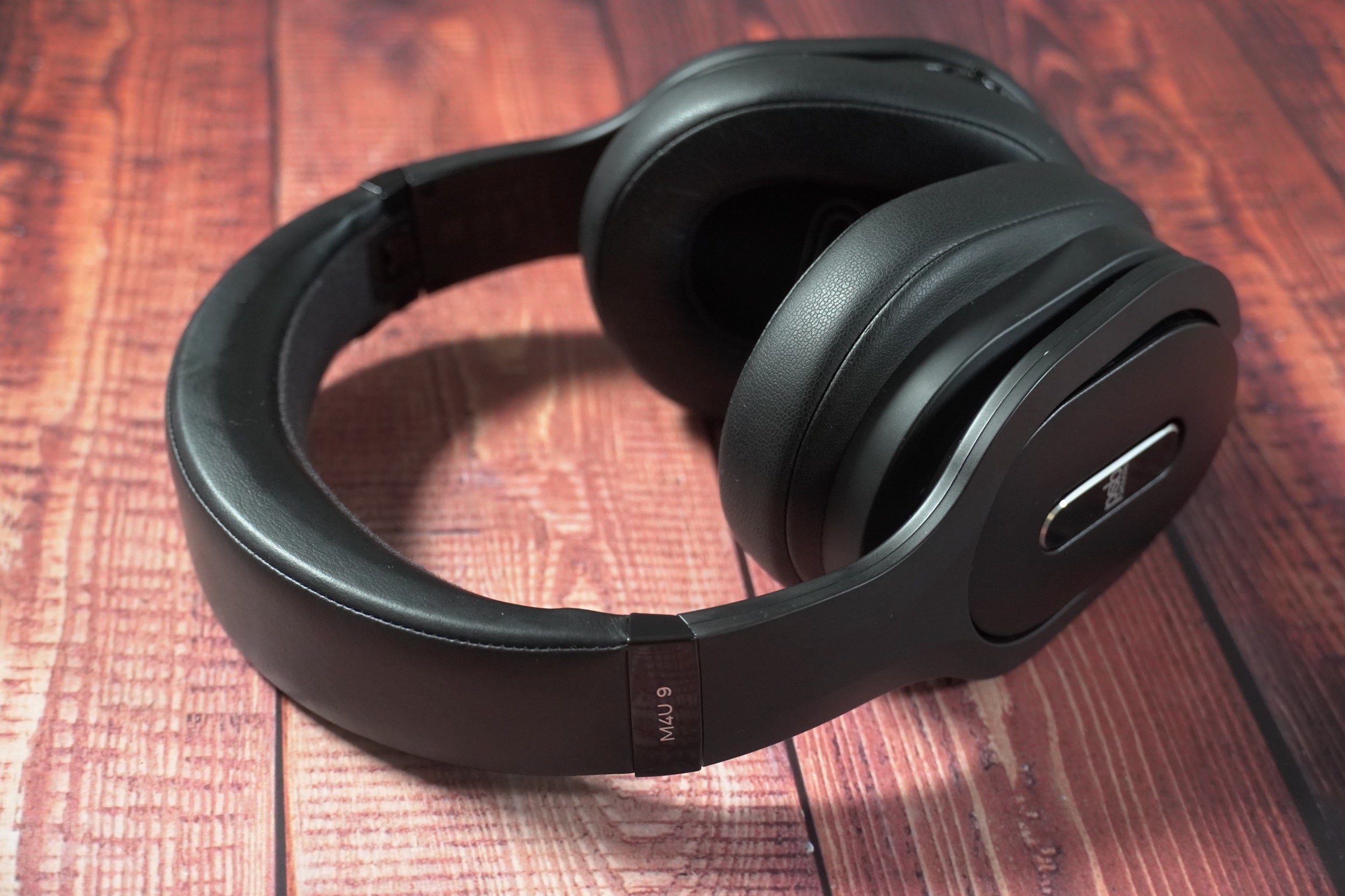Razer Opus Review
Razer is not the first company you think of for ANC headphones, but the Opus are great


Verdict
Razer’s not the first audio brand you think of for a pair of ANC wireless headphones, but the Opus are surprisingly capable, offering users solid noise cancellation and decent audio quality.
Pros
- Reliable ANC
- Balanced audio
- Lengthy battery
Cons
- Mics pick up background noise
Availability
- UKRRP: £199
- USARRP: $199
- EuropeRRP: €210
- CanadaRRP: CA$270
- AustraliaRRP: AU$329
Key Features
- AAC/aptX codecs
Introduction
The Razer Opus are one of 2020’s biggest surprises. They’re a pair of over-ear, ANC headphones from one of PC gaming’s biggest names that have the likes of the Sony WH-1000XM3 in their sights
Razer’s decision to target this already competitive market may seem strange for a company with their noses in at the gaming end of the headphone market, but the results are surprisingly good for £200 price.
Design
Subtlety isn’t a word you’d associate with a gaming company. Despite most reviewers’ cries for change, there are lots of gaming hardware that come with RGB lighting and cheap design flourishes designed to make them stand out. Thankfully this isn’t the case with the Opus, as Razer has taken a distinctly non-gaming approach to its design.
The headphones feature a monotone finish that’s free of RGB lighting. Even the green Razer logo has been replaced with a more elegant silver branding.
The design is wonderfully sleek, and means the Opus looks belong among the likes of competing pairs from the likes of Bose and Sony (and they appear to have taken inspiration from the WH-1000XM3)
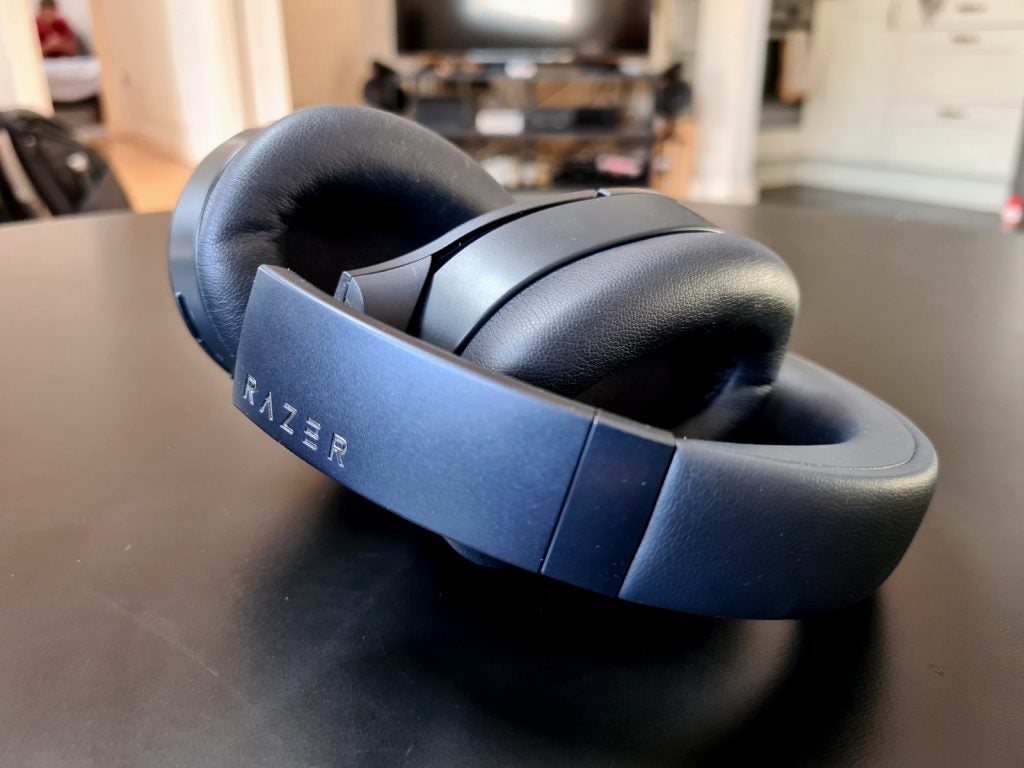
In terms of functionality they tick most of the boxes. On the left earcup are physical volume and a multi-function input, with the latter acting as the play/pause functions or for taking calls. On the right are the power and ANC on/off buttons.
If you’re after a wired connection, the Opus also has a 3.5mm port and USB-C charge connection, which you won’t have to use too much as the Opus lived up to Razer’s quoted 25-hour battery life with ANC on.
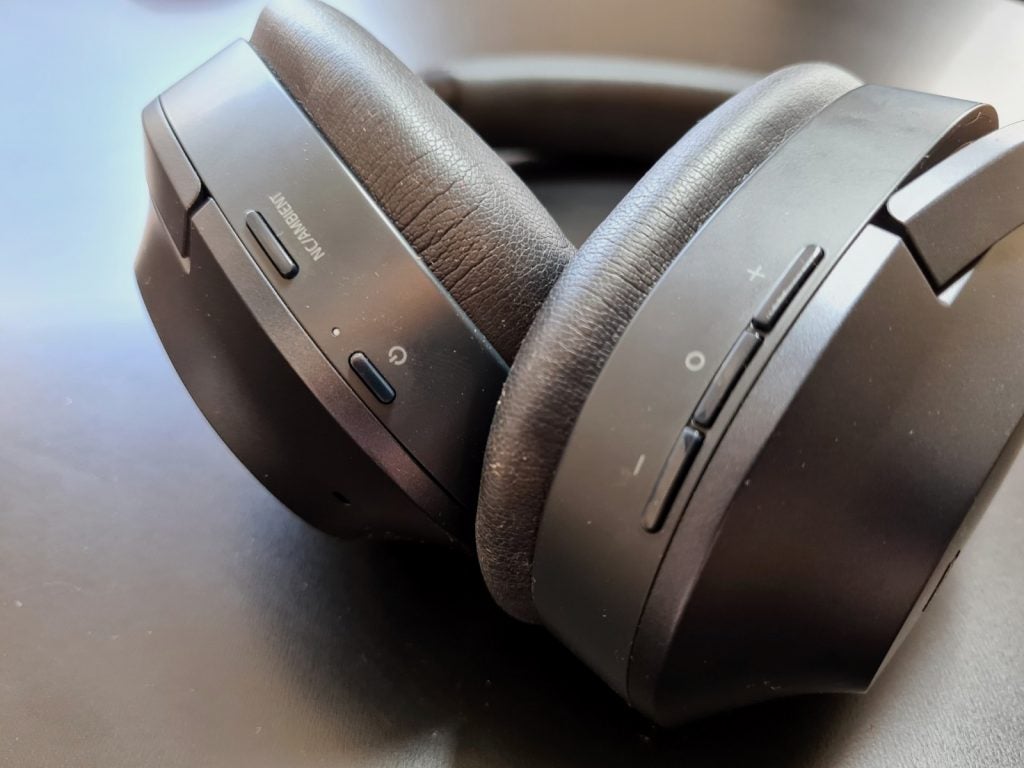
Build quality is also excellent. The plastic casing feels solid and easily fits into a regular satchel or handbag when folded up. The adjustable headband and faux leather padding are also well made and comfortable. The only downside is that the cups are quite small, which can make them uncomfortable to wear for prolonged periods if you have smaller ears or wear earrings.
Runners and outdoor users should be aware that, like most full-sized headphones, the Razer Opus don’t have an IP water resistance rating, so you may not want to risk using them in the rain (in case water gets inside). Razer’s two year guarantee means you can get a replacement if they do break.
Sound quality
The Razer Opus comes with a competitive specs sheet. They are stacked with 40mm drivers, active noise cancellation, Bluetooth 4.2 connectivity and support AAC & aptX, 4.2, A2DP, AVRCP and HFP codecs.
While this sounds good in theory, my experience with previous Razer headsets and the Nommo Pro sound system did leave me concerned about the tuning, despite the Opus being THX certified. In the past Razer’s tech has had slightly unbalanced audio, with the low end feeling a little flabby and overpowering, which leads them to sound like old Beats headphones.
This isn’t the case with the Opus. The Opus offers surprisingly balanced audio quality, with mids, highs and lows all holding a distinct part of the sound.
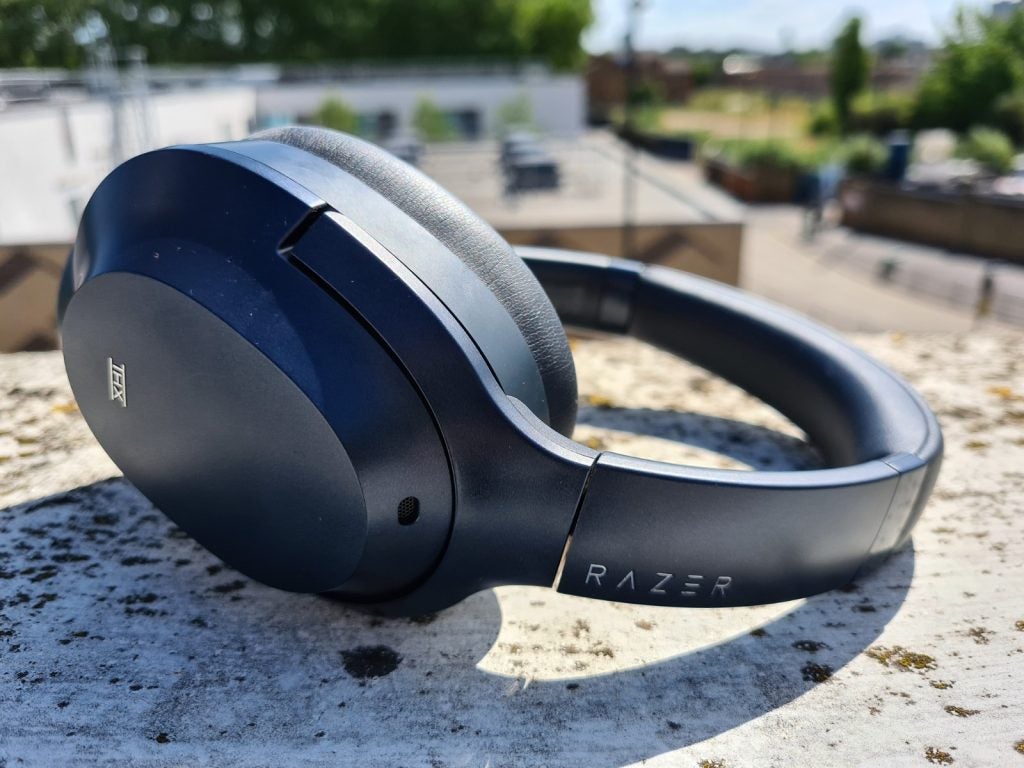
Listening to complex modern-classical string arrangements, every instrument was audible with the low cellos providing a suitably precise and detailed marching rhythm, while the highs of the violins swooped in and out.
Epic rock ballads had wonderful dynamism from Meatloaf’s vocals screeching over the rumbling bass line to sparkling guitars like a Bat Out of Hell. (Don’t judge me, Meatloaf’s still cool.)
Metal guitar parts managed to remain controlled without losing their bite, suffering from sibilance or taking on the nasally quality that can be heard on cheaper pairs. Tonal balance is excellent and a serious step up on most of the competing £200 sets I’ve tested.

ANC performance is also good. It’s not as powerful as Bose or Sony, but the ANC manages to easily drown out the sound of the busy road outside my flat as well as a washing machine churning away in the kitchen – something the Nuraphones I tested them against couldn’t match. I couldn’t test outdoor performance due to the lockdown, but this left me fairly certain they could be good enough to drown out background noise while travelling.
The only downside is the Opus don’t feature much customization. The app (Android, iOS) only lets the user choose between THX, Amplified, Vocal, Enhanced Bass and Enhanced Clarity presets. What’s more having tried each one, most are fairly pointless and you’re better off sticking with the out-of-the-box THX preset, which offers the most balanced sound. ANC options are limited to on or off, which is another annoyance. I’d personally have liked the ability to create custom profiles on a pair at this price.
The only other area the Opus really struggled with is mic quality. Despite its track record with gaming mics, the Opus are outright terrible for taking and making calls.
Even using them in my flat, people on the other end of the line reported hearing background noise. This means you’ll want to avoid using them as a gaming headset, or use them for phone calls when out and about.
Should you buy it?
If you’re after affordable all-rounders They’re an elegantly built set of over-ears that provide surprisingly balanced audio and effective ANC.
Want to use them for calls The mics are prone to picking up background noise, which affects call quality.
Final Thoughts
Despite coming from a company known for its PC gaming peripherals, the Razer Opus are a surprisingly capable set of wireless, over ear headphones.
They’re an elegantly built set of over-ears that provide surprisingly balanced audio and effective ANC. The only downsides are that the app is light on features, and the mics are prone to picking up background noise. But considering the Opus’ £200 price, these shortcomings are more than forgivable.





